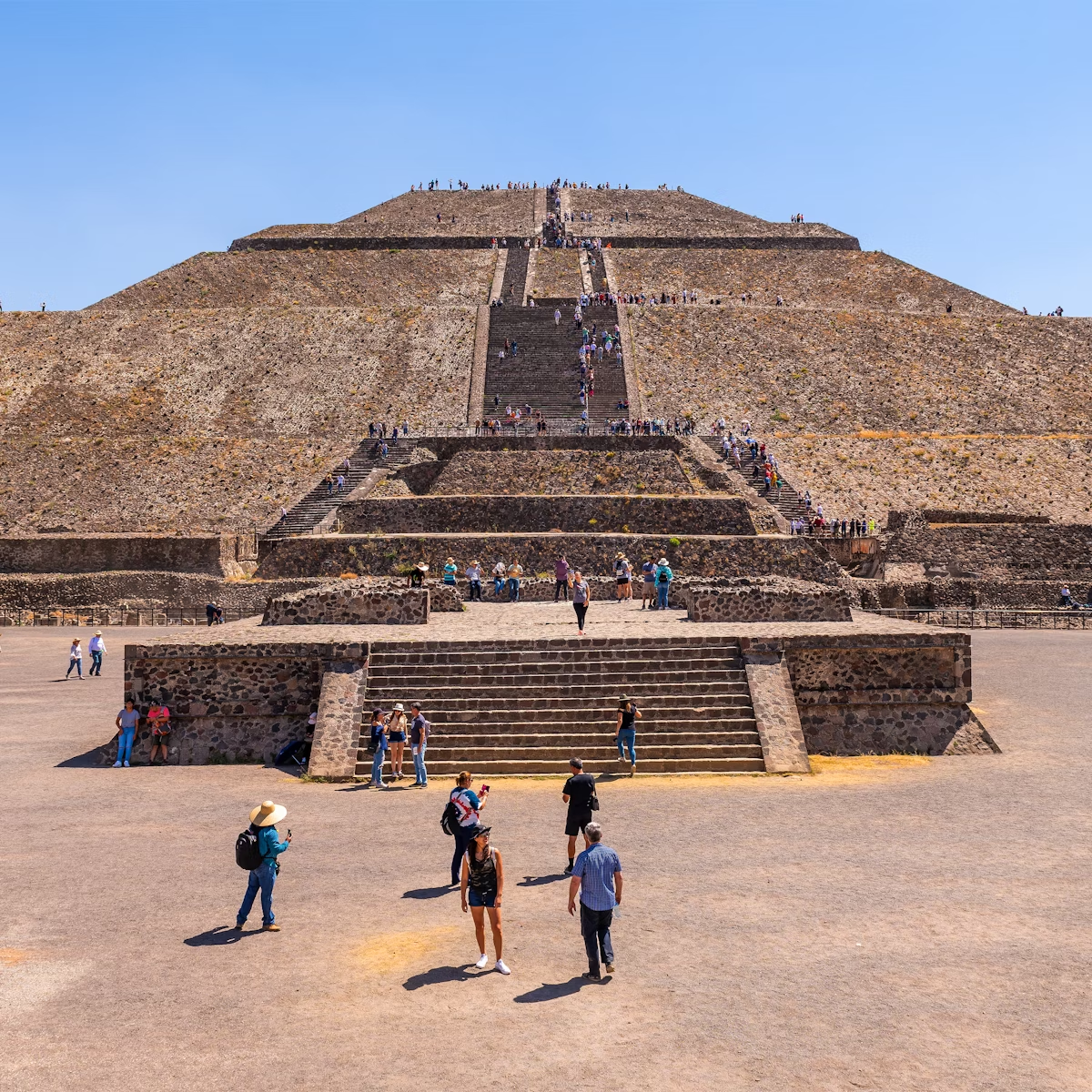One of Mexico City’s most iconic structures, this cathedral is a monumental edifice: 109m long, 59m wide and 65m high. Started in 1573, it remained a work in progress during the entire colonial period, thus displaying a catalog of architectural styles, with successive generations of builders striving to incorporate the innovations of the day. The conquistadors ordered the cathedral built atop the Templo Mayor and, as a further show of domination at a key historical moment, used most of these Aztec stones in its construction.
The first thing you notice upon entering is the elaborately carved and gilded Altar de Perdón (Altar of Forgiveness). There’s invariably a line of worshippers at the foot of the Señor del Veneno (Lord of the Poison), the dusky Christ figure on the right. Legend has it that the figure attained its color when it miraculously absorbed a dose of poison through its feet from the lips of a clergyman to whom an enemy had administered the lethal substance.
The cathedral’s chief artistic treasure is the gilded 18th-century Altar de los Reyes (Altar of the Kings), behind the main altar. Fourteen richly decorated chapels line the two sides of the building, while intricately carved, late-17th-century wooden choir stalls by Juan de Rojas occupy the central nave. Enormous painted panels by colonial masters Juan Correa and Cristóbal de Villalpando cover the walls of the sacristy, the first component of the cathedral to be built.
Visitors may wander freely, though you’re asked not to do so during Mass. A donation is requested to enter the golden Sacristía Mayor (open 2pm to 4:45pm) and the crypt (11am to 5pm, closed Thursdays), where guides provide commentary. You can also climb the campanario (bell tower; M$20; normally open 10:30am to 6pm), but it was closed for repairs without an end date at the time of writing. Mexico City’s archbishop conducts Mass at noon on Sunday.







